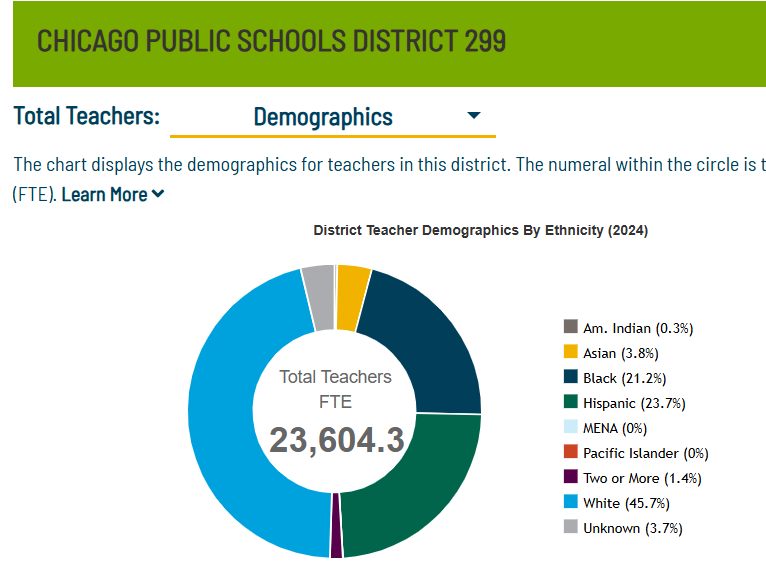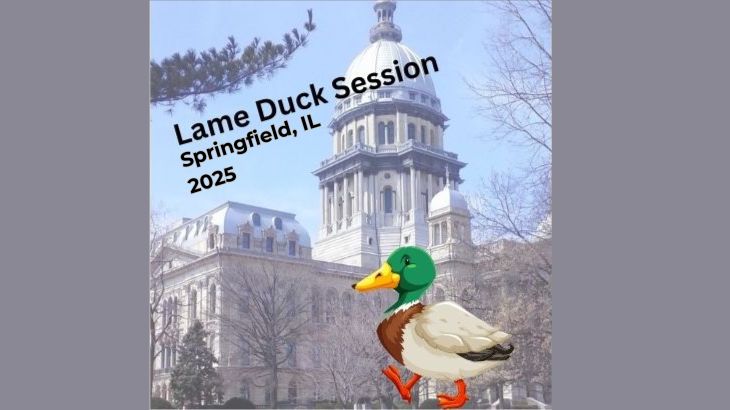America just went through a historic and revolutionary campaign and still Illinois Democrats refuse to recognize it.
Instead of canceling Lame Duck session, Democrats called legislators into session for four days in the middle of a snowstorm and passed bills for which there was no immediate urgency and many of which were highly controversial. Their tone-deafness extended to passing bills that allowed illegals to hide their true identity, doubled down on DEI policies, and mandated the expansion of renewable energy incentives which will cost taxpayers and ratepayers millions. Both support for illegals, DEI, and taxpayer-funded renewable energy were flashpoints in the 2024 election. But, the ruling class in Springfield does not care.
State Rep Chris Miller minced no words is telling his colleagues what a waste of time and money the session was.
Numerous other controversial bills were also passed. Again, none of the legislation was urgent and the bills could have been brought up in the new general assembly with more time for discussion, but transparency and a full open debate where all sides can weigh in on legislation is not something the Democrats care about.
I spent much of my time yesterday listening to House session and committees. Sometimes you have to hear the debate for yourself to understand how unreasonable and uncompromising Illinois Democrats are.
Here is a synopsis of a few of the more controversial bills that passed. Almost all of them were gut and replace bills, where the original bill was replaced entirely with a new unrelated bill. This process impedes transparency and should be stopped.
HB 5164 – Name Change Law. This bill allows a person to change their name and have that change hidden from the public so as to not be found under the previous name. The bill in concerning because it allows any resident who has lived in the state for only 3 months to make the name change and in the statute specifically lists refugees, people granted asylum, and special immigrant VISA holders as those the bill is intended to help. This would effectively shadow them from detection by Immigration and Custom Emforcement according to Republicans.
Senate Republican Leaders did a short press conference about the bill which can be viewed HERE. I only have a Facebook link to the video.
HB 867 – This bill gives Shabbona Lake and State Park to the Prairie Band Potawatomi Nation, an Indian tribe that nearly 200 years ago owned the land and then subsequently sold the land and now wants it back. At issue is that private homes are included in the land that the state wants to convey. Title to the private property could be possibly clouded if the federal government doesn’t formally approve of the transfer. Other issues discussed include: why are we giving away public land that was previously sold off? If the tribe takes over the land will they put up a casino? The tribe says they won’t. And before the land transfer is completed, an agreement between the tribe and the state that the land will be kept as a park and maintained by the state must be signed according to the bill. They get the land, we get the maintenance bill.
HR 942 – This resolution celebrates and encourages Illinois to continue with its Minority Teacher Scholarship program. This very generous scholarship of $7,500 for four years is not open to WHITE students. Read the eligibility requirements HERE. It’s obviously racist and the program is being challenged in court for being in violation of the US Constitution. Read about the lawsuit HERE. Dem Rep Laura Faver Dias, a former teacher, ran the resolution to show her disdain for the lawsuit and her support for the program. It’s all diversity all the time for IL Dems.
Faver Dias also asserted that minority students do better under instruction from minority teachers. I decided to test that claim, so I looked up the teacher demographics of Chicago Public Schools and the proficiency of Black and Hispanic students.
Here’s what I found out using Illinois State Board of Education data:
Demographically Minority Teachers account for just over 50% of Teachers in CPS
Black Teachers 21.2%
Hispanic Teachers 23.7%
Other Minority 5.5%
White 45.7%


I wish one of the Republicans had mentioned this data on the House floor and provided a little push back. In the vote tally, you can see the legislators who went Not Voting so that they couldn’t be accused of voting against the resolution and called a racist. Here’s the House VOTE.
HB4144 – This law marries up an order of protection with Red Flag laws allowing the decision of a court to award an order of protection to then immediately require a warrant to be served to take any guns from the person subject to the order of protection. Guns are already confiscated in the cases of orders of protection. This bill makes the local police and sheriff departments responsible for collecting up those guns within a very short time frame and without due process of the gun owner. Once signed, the law will likely be litigated over because of the lack of due process in taking away a 2nd Amendment right. The bill is known as Karina’s law, you can read about the tragic death of Karina Gonzalez and her daughter that explains the loophole this bill is designed to close. Read HERE. While this may close a loop hole, I’ll believe the Democrats are serious about gun violence when they start to lock up anyone found with an illegal gun in this state – like most of the violent criminals in Chicago.
HB 587– This 291-page bill dropped out of nowhere and is a big rewrite to the Climate and Equitable Jobs Act. The Dems love to give their bills names and have dubbed this the “Skinny Energy” bill promising a much more far-reaching rewrite of CEJA in the Spring session. Why, are they tweaking CEJA again? Because the original legislation is not getting them to their renewable goals as quickly as they planned. Let’s face it. FUJA – the 2016 bailout bill of Exelon bill for which ComEd effectively admitted to bribery and for which, in part, four people were convicted of such, and now CEJA have proven that no matter what incentives they give, renewables cannot and will not replace coal, natural gas and nuclear power.
But, your Democrats in this legislature are undeterred and no matter how much it costs they will attempt to defy the laws of physics and nature in the belief they can affect the climate.
So in furtherance of their misguided attempt to control the climate under the belief that any rise in temperature an existential threat, HB 587 amends a number of statutes with the goal of propping up the renewable energy sector in Illinois that is facing lag times to get projects online, i.e. connected to the grid. This lag is due to a lot of reasons some of which they attempt to fix in the Skinny bill, but all they really do is try to speed up battery storage and more solar.
This topic gets complicated very fast and I am convinced no legislator really understands the energy market, pricing, and grid processes as it is obvious from the debate from both sides of the aisles. The legislation was written by renewable energy companies with input from the Illinois Power Agency and utilities. The best article that explains what’s going on was written by Andrew Adams in Capitol News Illinois. Read his article HERE to begin to understand what’s going on.
Adams explains the set-up for this bill saying, “Several factors contribute to the concern over the grid’s future. A growing number of data centers in the U.S. and in Illinois are demanding massive amounts of energy. The state’s fossil fuel industry is – by design – in decline. And backlogs at regional grid operators have delayed renewable electricity generation from coming online.”
Notice how Adams says the fossil fuel industry – that’s coal and natural gas are declining – BY DESIGN. The Democrats want no more use of fossil fuels in Illinois. This is insanity.
Here are some of the provision in the bill:
- Doubles down on prevailing wage and diversity hire provisions
- Designates battery storage as a high impact business eligible for tax incentives
- Allows the IPA to adjust the mix of solar and wind in their procurement
- Allows the IPA to increase the rate increase cap above 4.25% for purchase of renewable energy if there isn’t enough money under current collections.
In Adams article, he explained that part by saying:
CEJA’s aim was to replace fossil fuels with renewables by incentivizing investment in wind and solar. But regulators now worry that the pool of money that funds that transition could soon fall short.
Illinois requires electric utilities to supply a minimum percentage of customer demand with renewable energy. The Illinois Power Agency purchases this electricity at “procurement events” using a complex system of financial instruments such as “renewable energy credits.” It tracks its progress through what’s known as the renewable portfolio standard, or RPS.
The RPS is funded by Illinois utility customers through a charge on their monthly bills. Utilities then use the money collected from this charge to purchase renewable energy credits.
The state’s next benchmark is to have 40% of electricity sales come from renewable sources by 2030. As of October, the RPS was less than halfway to meeting that mark, although there is still time for the state to back new developments to meet that goal.
IPA Director Brian Granahan said while the RPS’ funding is sufficient for now, it could fall short in the near future.
“We face substantial uncertainty past 2026,” Granahan told Capitol News Illinois.
The IPA’s most recent forecast shows the RPS facing a potential budget shortfall by mid-2027, based on its long-term renewable procurement plan. By 2039, the RPS has a projected budget shortfall of $3.13 billion dollars. This “uncertainty” over the future of the RPS budget has several causes, including forecasted increases in the price of renewable energy credits. Increased demand for electricity also contributes to higher projected costs in the RPS budget.
In committee Dem Rep Gabel, the bill sponsor was asked directly if this bill will raise rates. She answered definitively NO, and then later on during debate in committee and on the floor she said she “didn’t think so” because there was no procurement in the bill. But, the bill does direct a change in procurement by allowing the IPA to change the wind/solar mix and someone – taxpayers or ratepayers – will be paying for any pricing differential from that mix and the tax incentives to battery storage companies, and likely for other provisions not well-discussed in debate.
The bill will only lead to more trailer bills as politicians try to engineer an all renewable energy environment that will never happen in the foreseeable future. But, you’ll pay for their nonsense anyway.
